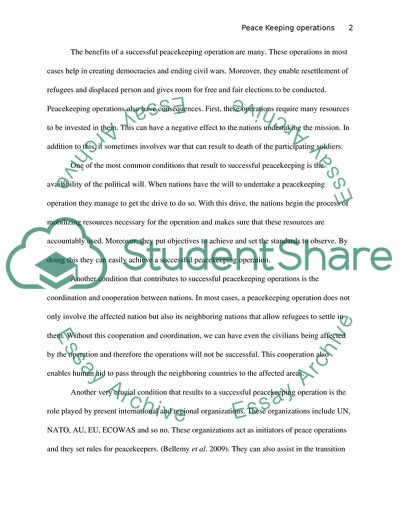Cite this document
(Conditions that Contribute to Successful Peacekeeping Operations Article, n.d.)
Conditions that Contribute to Successful Peacekeeping Operations Article. https://studentshare.org/politics/1772276-1what-conditions-contribute-to-successful-peacekeeping-operations-draw-upon-examples-to-illustrate-your-answer
Conditions that Contribute to Successful Peacekeeping Operations Article. https://studentshare.org/politics/1772276-1what-conditions-contribute-to-successful-peacekeeping-operations-draw-upon-examples-to-illustrate-your-answer
(Conditions That Contribute to Successful Peacekeeping Operations Article)
Conditions That Contribute to Successful Peacekeeping Operations Article. https://studentshare.org/politics/1772276-1what-conditions-contribute-to-successful-peacekeeping-operations-draw-upon-examples-to-illustrate-your-answer.
Conditions That Contribute to Successful Peacekeeping Operations Article. https://studentshare.org/politics/1772276-1what-conditions-contribute-to-successful-peacekeeping-operations-draw-upon-examples-to-illustrate-your-answer.
“Conditions That Contribute to Successful Peacekeeping Operations Article”. https://studentshare.org/politics/1772276-1what-conditions-contribute-to-successful-peacekeeping-operations-draw-upon-examples-to-illustrate-your-answer.


